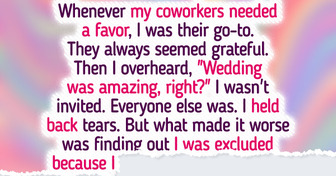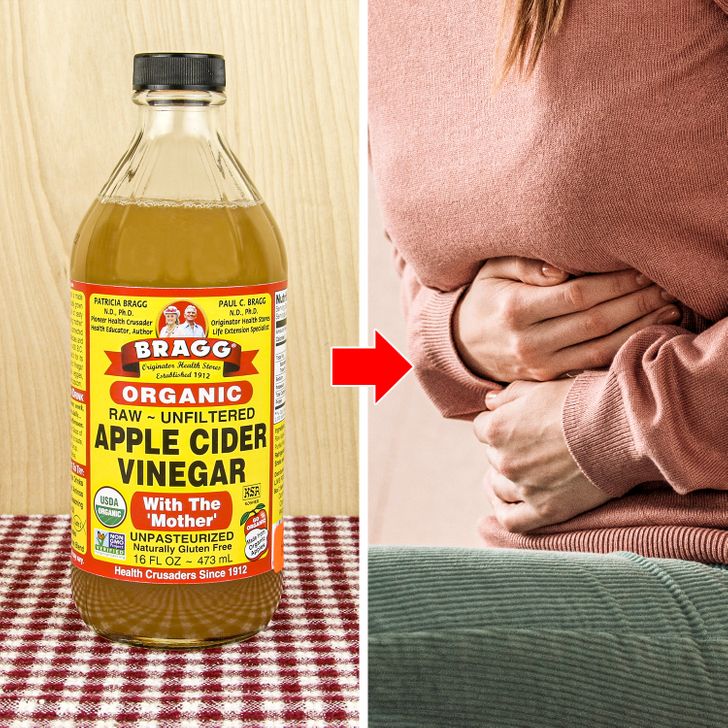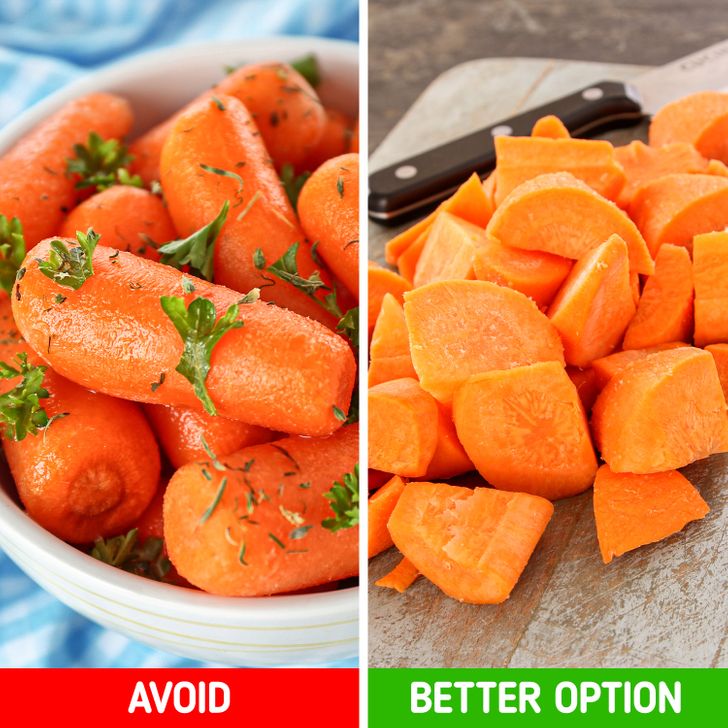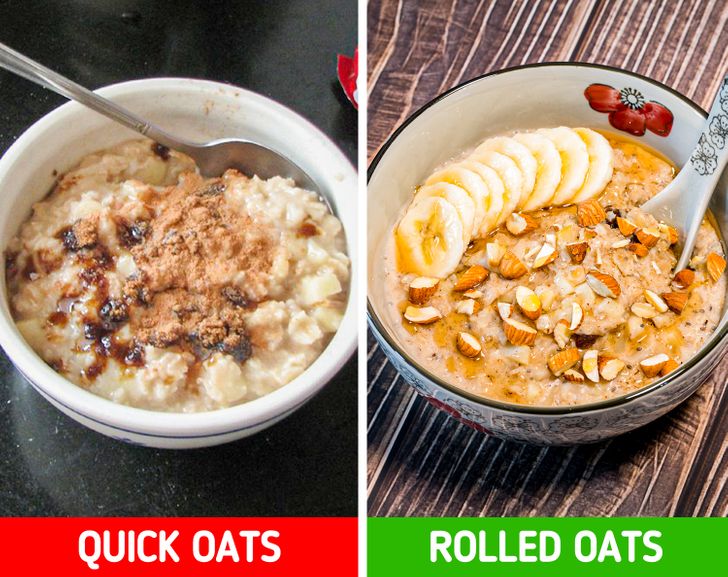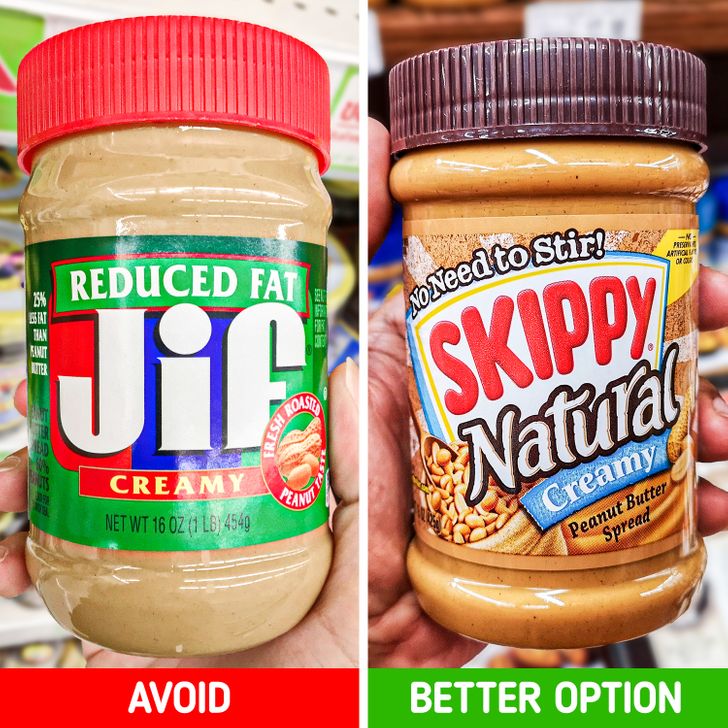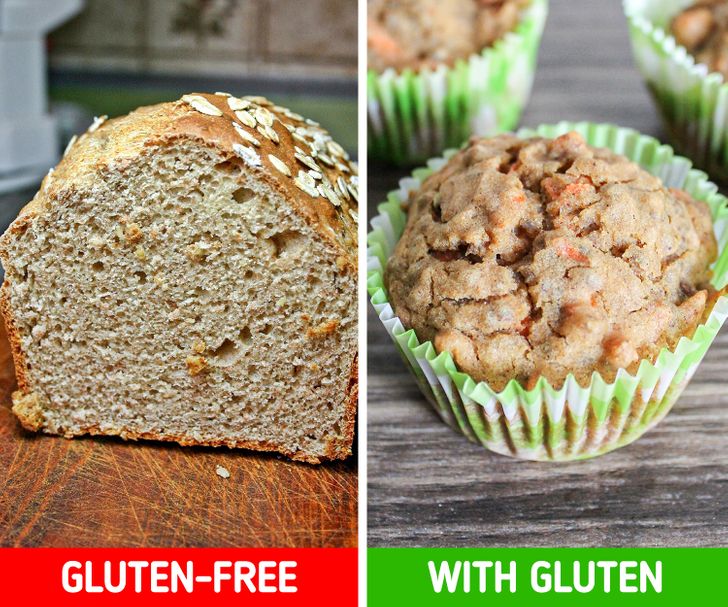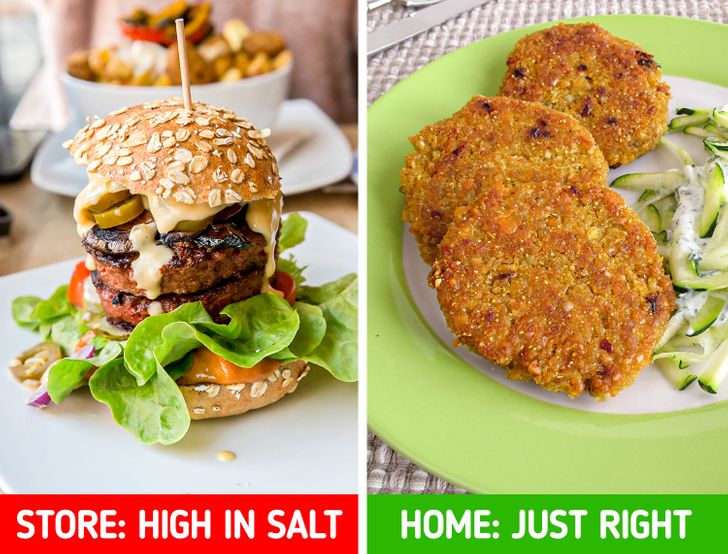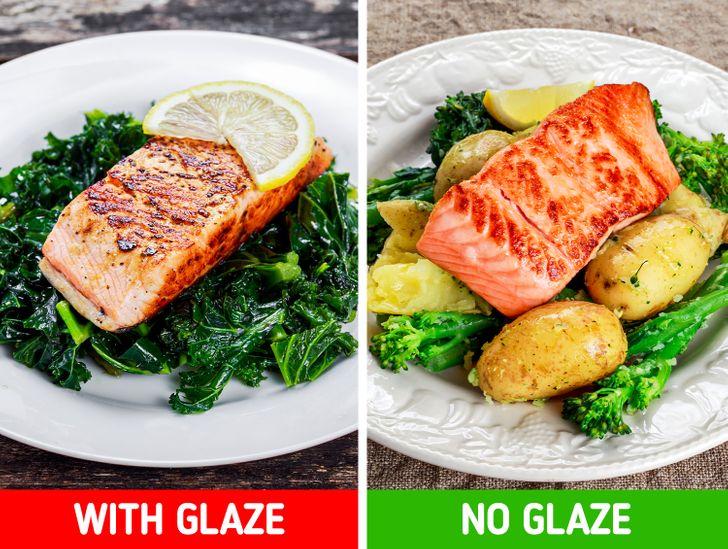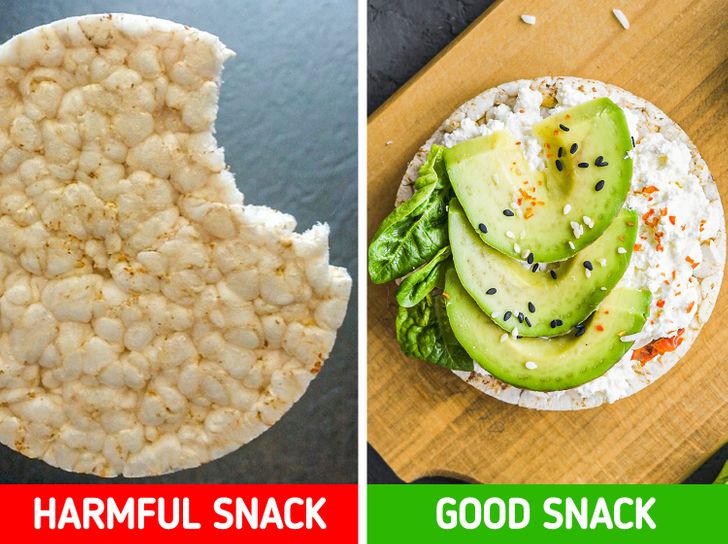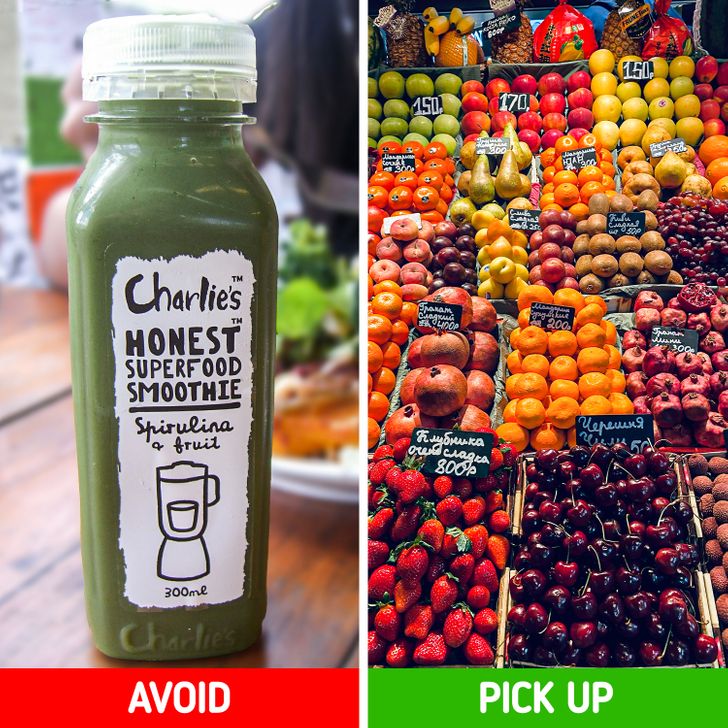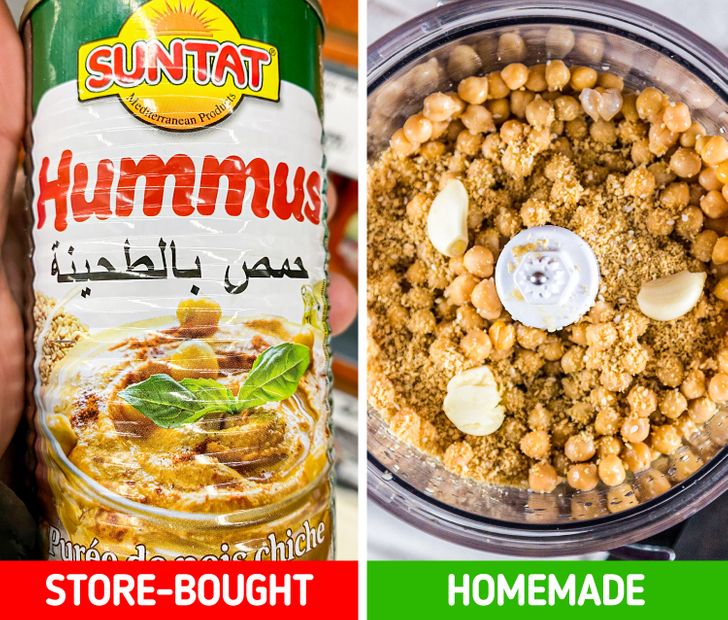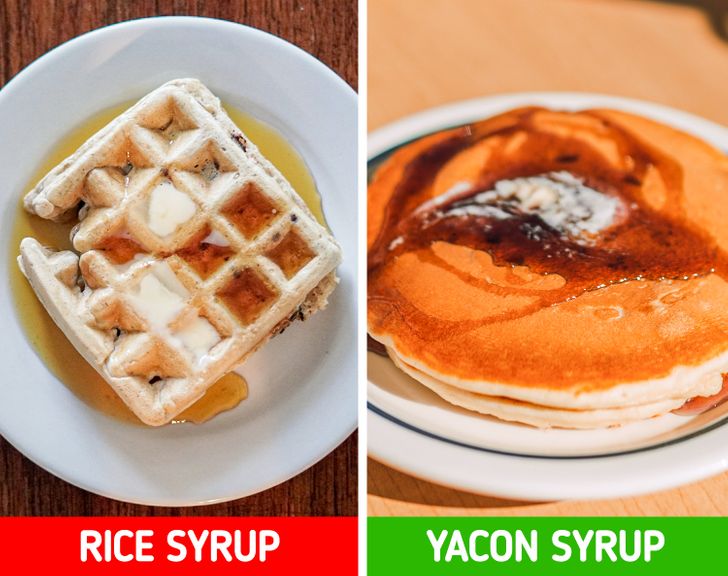wow
12 Popular Foods That Can Do More Harm Than Good
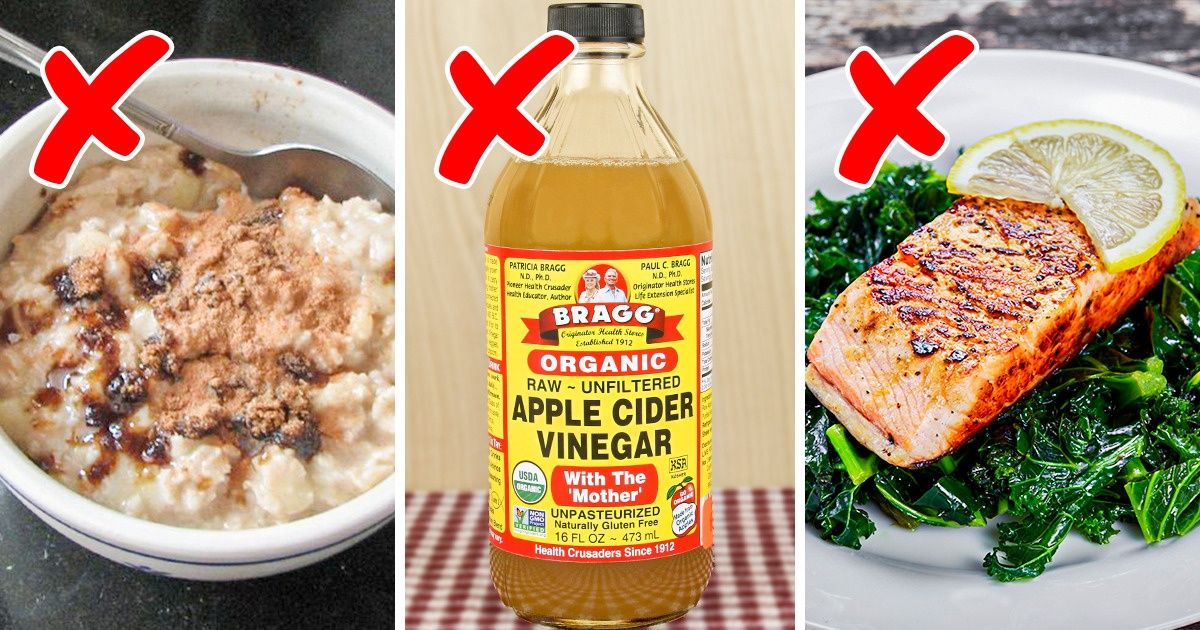
Vegan, no gluten, low-fat, and even superfood labels are constantly promoted as “healthy” and “guilt-free” options to help you achieve perfect well-being. However, lots of junk ingredients can be sneakily added to them, turning our favorite snacks into less obvious junk food. In the end, we might end up damaging our health and unexpectedly putting on extra pounds.
Physical and emotional welfare is a priority at Bright Side. So today, we’re ready to tell you what kinds of products ought to be removed from your shopping list for good.
1. Apple cider vinegar
Even though there are still debates about whether this ingredient helps with weight loss or not, many people still drink it as a regular part of their diet. However, they should know that this liquid is highly acidic and can upset the stomach and cause bloating. On top of that, it can cause nausea, throat burns, damage to the teeth, and can even lead to bone loss.
2. Baby-cut carrots
To be turned into an appealing snack, large carrots go through a process of size reduction. The end product might sometimes have fewer vitamins than normal carrots. If the store doesn’t keep raw baby-cut carrots in cold conditions or you’ve noticed that they’ve become dry, this can mean that their nutrients are reduced too. To be on the safe side, opt for regular unpeeled carrots and prepare them at home.
3. Instant oatmeal
Instant oatmeal usually has almost no fiber and is commonly blended together with flour and sugar to add flavor. This can cause a spike in blood glucose and lead to health problems if you prefer to eat it on a daily basis. To get the benefits that oatmeal provides, it’s better to opt for whole-grain, rolled, or steel-cut oats and sweeten them with some fruit or berries.
4. Reduced-fat peanut butter
A portion of reduced-fat peanut butter would have roughly the same amount of calories as a regular jar. But in the low-fat ones, the fat is often replaced with processed fillers and sugars. It’s way better to enjoy the natural, full-fat variant in moderation since it contains more healthy nutrients.
5. Gluten-free products
Unless you’re gluten intolerant, you shouldn’t really avoid gluten. Thanks to good marketing, gluten-free products are now seen as healthier options. But the data shows that they tend to be higher in sugar, salt, and saturated fat than their gluten alternatives. They are also less nutritious, as they contain less protein. On top of that, things labeled gluten-free are, on average, more expensive.
6. Veggie burgers
When consumers see “plant-based” on the label, they might automatically think the product is healthier. Veggie burgers are considered processed food, and some store-bought variations can contain a high amount of salt as well as oil or butter to hold the patty together. Eating them frequently can result in more calorie consumption and lead to health problems. To get the best out of the plant-based option, it’s better to make them yourself at home.
7. Prepared salmon
If you opt for baked salmon at a restaurant, watch out for various glaze sauces that will be added to your fish. Such a coating usually is high in sugar and oil, which will easily add unnecessary calories and reduce the health benefits of the dish.
8. Whole-grain bread
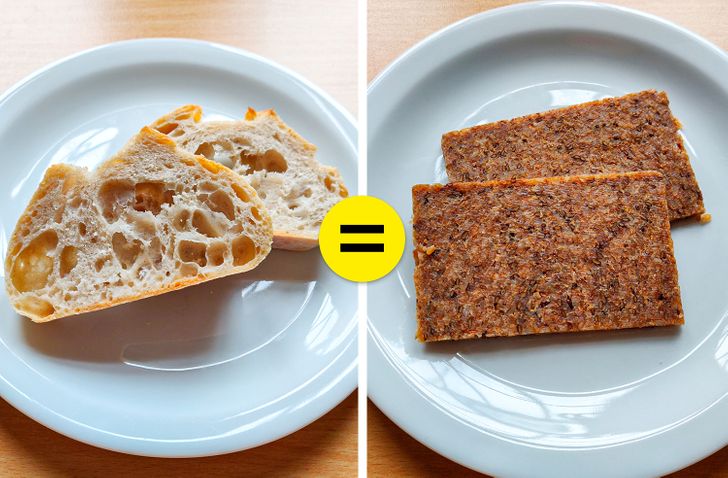
Even this seemingly healthier white bread alternative can contain as much as 20 ingredients, preservatives, high amounts of salt, or sugar. Also, some of the store-bought whole-grain versions can still be loaded with white refined flour. To get all the useful benefits of grains, you should try to bake your own bread at home.
9. Rice cakes
On one hand, they’re lower in calories than bread or crackers. However, they barely contain any nutrients or vitamins. Eating them can cause a spike in blood sugar and raise your insulin levels. To balance out their effect on your body, try to avoid eating them alone and combine them with healthy toppings, like fish, vegetables, or fruit.
10. Popular superfoods
Most of the time, such labels are used to change the public’s opinion about a particular product. And while foods like blueberries, kale, fatty fish, or nuts deserve to be called superfoods, some of the processed alternatives should be left on the shelves. “Super” juices or popular powders can be made with a lot of sugar and provide you with almost no health benefits.
11. Hummus
This chickpea dip is considered to be healthy, but the store-bought version can hide unnecessary ingredients. Carefully scan the package and see what’s listed in the ingredients to learn if there are added sugars, processed fats, starch, and large amounts of salt.
12. Brown rice syrup
This sugar alternative can cause a spike in your blood sugar very quickly thanks to its high glycemic index. It’s highly refined, and there are barely any useful nutrients inside of it, which means that adding this sweetener to your dishes will leave you consuming “empty” calories. Stevia, erythritol, xylitol, and yacon syrup are better options.
Which of these foods do you eat often? Let’s discuss this in the comment section!
Comments
This is so personal that we just can't show it to you.
Related Reads
11 Times Photoshop Battles Got Completely Out of Control

10 Stories That Prove Work-From-Home Isn’t Always What HR Promised

12 Times Strangers Showed More Kindness Than Family
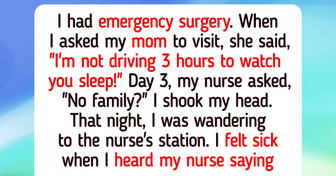
I Refuse to Earn Pennies While My Manager Cashes a Fortune
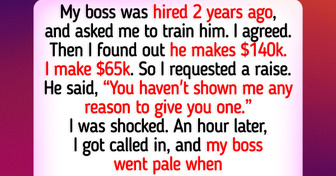
I Refuse to Let My Daughter Attend Her Dad’s Wedding

My MIL Tried to Humiliate Me at the Altar—By Morning, She Wasn’t Laughing

16 Touching Stories That Capture the Chaos and Beauty of Blended Families

10+ People Who Went on Holiday for Comfort but Got a Crazy Story Instead
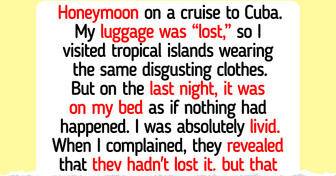
15 Moments That Prove Kindness Is the Bravest Choice

15 People Who Went Home for a Quiet Visit but Got a Plot Twist Instead

10 Moments of Superhuman Strength That Feel Like Winning the Olympic Games
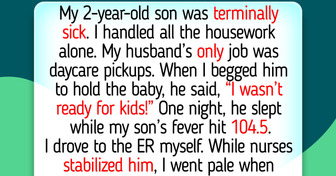
My Coworkers Excluded Me From Their Group Chat on Purpose—The Real Reason Shattered Me
